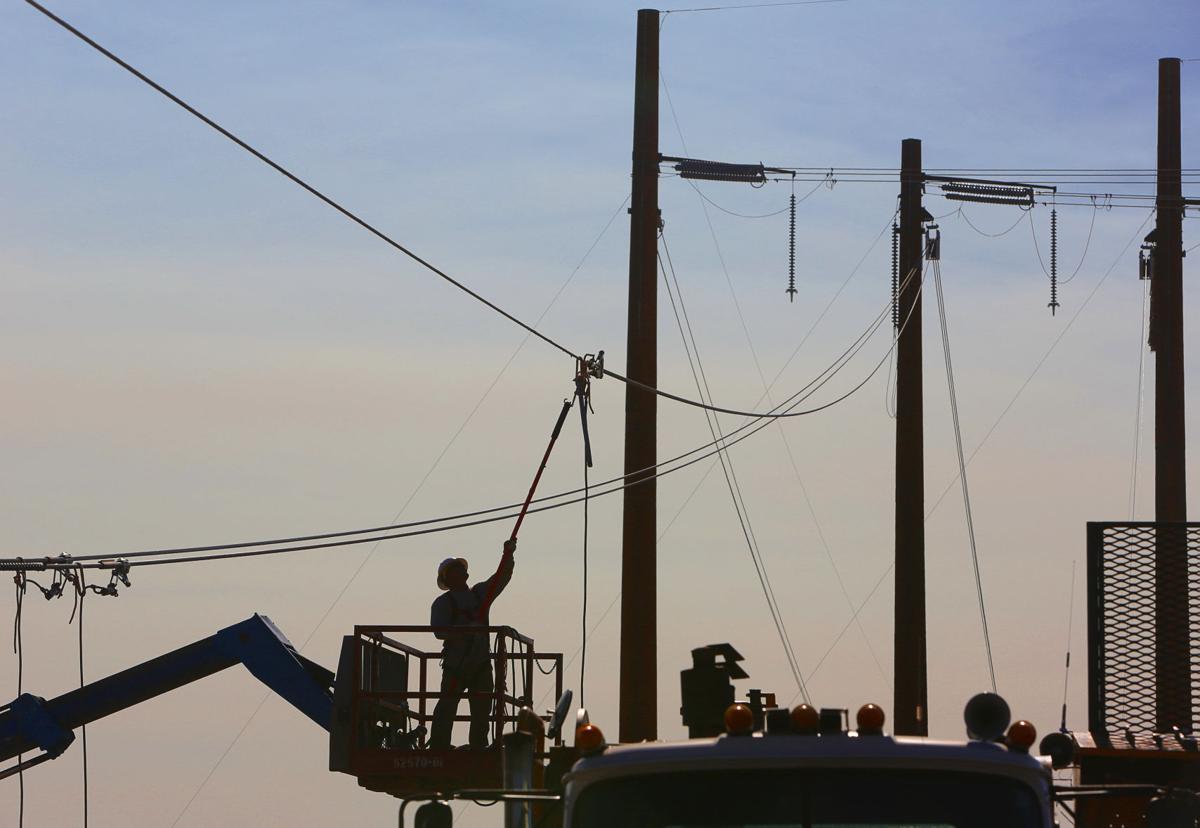Can discounted electric rates help lure companies to Tucson or prompt businesses already here to expand local operations?
Tucson Electric Power Co. thinks so, and it’s proposed a special discount rate for new or expanding companies as part of a rate request the company filed with the Arizona Corporation Commission in early November.
TEP’s proposed “economic development rate” would allow businesses that meet certain qualifications, such as job creation or minimum power requirements, to qualify for discounts on their power bills over five years.
Expanding businesses would qualify for bigger discounts than companies opening or moving all-new facilities here, under TEP’s plan.
Businesses expanding in TEP’s territory would qualify for discounts starting at 30 percent in the first year, tapering off to 5 percent by the fifth year.
New business customers would see discounts starting at 20 percent in the first year, dropping to 2.5 percent in year five.
To qualify for TEP’s proposed economic development rate, businesses must meet certain power demand thresholds — including peak demand of 3,000 kilowatts or more — and qualify for at least one of two state tax-credit programs based on expected new jobs and capital investment.
The utility says the special rates will help it fulfill its role in local economic development by helping to attract new companies or convince firms to grow here.
TEP has long been involved in local economic-development efforts and is a major supporter of Sun Corridor Inc., the Tucson area’s main economic development organization.
“We want to create economic development as much as anybody,” said David Hutchens, CEO and president of TEP and its parent company UNS Energy Corp.
Hutchens, who sits on Sun Corridor’s Chairman’s Circle and its board of directors, noted that TEP already is often involved in talks with companies that want to move here or expand, and many utilities elsewhere offer special economic-development rates or other business incentives.
Economic development rates and similar incentives have been around for years, mainly to attract major manufactures but more recently to court high-tech industries, said industry consultant John Wolfram of Catalyst Consulting LLC in Louisville, Kentucky.
“It’s having a bit of a renaissance, because of the competition for new customers in the recovering economy,” Wolfram said.
Economic-development rates are relatively new in Arizona, though state-regulated utilities have long had the leeway to negotiate contracts — often at a steep discount to standard commercial rates — with their biggest commercial and industrial customers, such as mining operations.
In July, the Corporation Commission approved a request by Arizona Public Service Co., the biggest state-regulated utility, to offer online auction giant eBay reduced rates for its data center in Phoenix.
Terms of the deal were not disclosed, but APS — which was granted authority to seek such discounts in a 2012 commission decision — said eBay may have opted to expand data centers elsewhere without some incentive to grow in Phoenix.
Discounts under economic-development rates typically are available for a limited time and shrink over time, Wolfram said. They also are generally designed so the utility will lose some revenue, but it can still cover its marginal costs and not shift costs to other ratepayers — assuring that other customers are no worse off for the deal, Wolfram said.
“The idea is that if the utility is going to give a discount, it should come from the utility’s margins, their profits — that other customers shouldn’t cover the difference,” he said.
TEP says the addition of high-load customers helps the utility’s grid operate more efficiently and managable sales growth helps spread the fixed costs among a greater number of customers, lessening the need for rate increases.
“Additionally, because many utilities either have or are beginning to implement (economic development rates), not having one would put TEP at a competitive disadvantage,” the company said in its filing.
Joe Snell, president and CEO of Sun Corridor Inc., the area’s economic-development agency, said the special rate would be welcome news.
“The ability to offer a special rate would allow us to be more competitive in attracting and expanding employers, especially for large industrial users looking at multiple states that offer lower rates,” Snell said in an email.
Mike Varney, president and CEO of the Tucson Metropolitan Chamber of Commerce, said the proposed rate break might help attract new businesses and could promote expansion.
But some longtime local businesses who don’t qualify for the break may object to the special treatment, he added.
“I can see where it could raise some questions,” Varney said.





